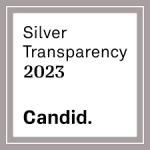Ecotober
Happy Halloween – or better yet,
Happy Ecotober!
The good news? There are lots of ways to make a difference. No one can do everything, but everyone can do something.
Here is your invitation to do something – or many things – to improve the quality of the Chesapeake Watershed.
This week, we are offering 3 great opportunities to help the local environment!
1. Clean up at the storm conveyance behind Giant/Chipotle.
2. Beautify Pluto’s Good Neighbors Group Garden
Good Neighbors Group has adopted the garden around the Pluto statue on the B&A Trail! (See before and after pictures above.) We would love your help as we continue to make our planned improvements. We will have more work days, so please let us know if you’d like to help, and if you’d like to keep receiving updates about this and other local eco projects.
3. Find your nearest neighborhood storm drain and clear it of debris that could wash into local waterways.
Please keep sending us photos of your neighborhood storm drains and how you are keeping them clear! Thank you, Cypress Creek for sending us a before and after of one of theirs!
Eek-O-tober: Week 3
“Plogging”
The Problem
You’re out for a walk or a jog, and you see trash on the trail or roadside. Besides being ugly, it could end up in the stormwater.
The Solution: “Plogging”
Plogging is a movement that began in Sweden. Plogging combines the Swedish term for pick up (plocka upp) with the Swedish word for jog (jogga).
- Next time you go out for a walk or jog, bring a bag. Pick up trash along the way. You’ll be adding bending, squatting and stretching to your run, hike or walk, as well as helping the environment and making the area look better for yourself and the next person.
- Take a photo of what you’ve collected and share it with us by email or on social media.
Eek-O-tober: Week 2
“Invisible” Items in Our Storm Drains
The Problem
Spooky Fact: A 1” rainfall on an acre of forest releases 750 gallons of runoff. A 1” rainfall on an acre parking lot releases 27,000 gallons of runoff. Water picks up anything in its path on the way to the storm drain. Examples are:
Pesticides, including mosquito treatments
Lawn fertilizer
Road salt
Dog poop (ok, not invisible)
Car/truck/lawn mower emissions and air pollutants that settle on the pavement
Sediment from construction sites or bare patches in yards
Our Action
This week, look at your own property and commit to 1 of these 5 ideas below:
- Reduce the fertilizer. It runs off of lawns and into storm drains
- Test soil to see what is needed, and apply only the amount called for.
- Extend a garden or replace parts of your lawn with pollinating plants or ground covers.
- Set the mower high to impede weed growth.
- Leave the grass clippings on the lawn to provide nutrients.
- Choose grass seed appropriate for the climate and your yard’s light and moisture conditions.
- Leave the leaves. Leaves make great habitat and food for butterflies, bees, moths, beetles and more. Lawns benefit from a thin layer of leaves.
- Chip woody waste for compost or to use as mulch.
- Excess leaves can be piled up around ornamental trees, shrubs, and perennials.
- Sweep yard waste out of the path of runoff water so they don’t enter the storm drain.
- Scoop the poop!
- Use compostable bags that break down in landfill. (Look for ASTM D6400 classification.)
- Avoid using plastic bags. Though convenient, these should be recycled to keep bits of plastic out of the waste stream. Instead drop those off in plastic bag recycling at almost any grocery store.
- Wash cars at a commercial car wash. These are required to send wastewater to a treatment facility. When pollutants like oil, grease, heavy metals, solvents and soaps run down our driveways, they enter storm drains.
- Slow the water.
- Install rain barrels, a rain chains or downspout diverters into landscaped areas to reduce unchecked runoff.
Keep sending us your photos or post them on social media and tag Good Neighbors Group!
Eek-O-tober: Week 1
Meet your friendly, neighborhood storm drain
We see them all the time and don’t pay a lot of attention unless something you love falls into one, you see a raccoon crawl out of one or you watch the movie, It.
These drains, designed to handle excess water, are placed at natural low points in roadways to reduce flooding. There are 38,007 drain inlets in Anne Arundel County.
The problem:
Trash and organic matter on top of them are physical barriers that can result in flooding.
Trash that does fall into the drain pollutes the water and can be hazardous to animals. When leaves and grass decompose in the water, they consume oxygen, thereby depriving crabs and fish of O2 and creating dead zones.
Our Action:
This week, notice the storm drains where you live, work or run your errands.
How many storm drains are in your neighborhood?
Are they free of debris? If it is safe (not on a major road), can you put on gloves, grab your tools and dispose of the yard waste and trash?
Share the difference you are making by sending us your before and after storm drain pictures by email or tagging @goodneighborsgroup on social media!
Unless someone like you cares a whole awful lot, nothing’s going to get better. It’s not.
Dr. Seuss | The Lorax
Your Contribution Matters

Donate
By supporting Good Neighbors Group with your monetary donations you're directly supporting your neighbors in need. Become a one-time or monthly donor today!

Business/Non-profit Partnership
Would you like to support Good Neighbors Group with your services or donations? Get in touch to learn how you can help.


